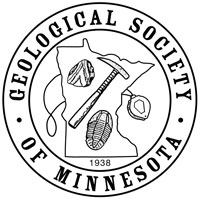Seminar Lab Date:
Seminar Lab presenter:
Seminar Lab Subject:
Seminar Lab Location :
Virtual lecture 7:00 PM CT.
Participation instructions will be e-mailed to GSM members. If you are not a member of GSM and wish to attend this free seminar online, register as follows by 12 noon CT Monday, Mar 11: Go to the Contact menu above and select "Ask GSM". In the form that appears, enter your name and e-mail address. Enter "Mar 11 lecture" in the subject line. In the message body, please enter the city and state or country from which you will view the seminar. You will receive instructions by e-mail prior to the lecture. Check your spam folder if the instructions do not appear in your in-box at least one hour prior to the lecture.
Seminar Lab Details:
Summary: Trilobites are one of the most charismatic representatives of the Paleozoic. They lived for over 250 million years all over the globe. But, can something—dead for so long—teach us anything meaningful and relevant today? In this talk, I will argue a resounding yes. Trilobites are a part of the great experiment of life that has already been completed. After a brief introduction, I will highlight ways, all from current research, that trilobites have taught us new things about diversity, growth, fossilization, and yes, even technology. The studies I will relate contain anecdotes both from my own research, and from the research of other paleontologists, over the last two decades.
Biography: Thomas Hegna grew up in western Iowa and attended the University of Iowa where he fell in love with invertebrate paleontology. He graduated in the spring of 2004 with honors and high distinction in Geoscience (B.S.) with minors in English and Philosophy.
Dr. Hegna stayed at the University of Iowa for his M.S., graduating in the fall of 2006 after completing a project on the systematics and phylogeny of a fauna of upper Cambrian trilobites. He then moved on to Yale University, where he completed his thesis on branchiopod crustacean phylogeny and their fossil record in the spring of 2012. He taught at Western Illinois University from the fall of 2011 to the spring of 2019. In 2016, he was awarded the WIU Provost’s Excellence Award for Teaching with Technology.
During the summer of 2019, he moved to Fredonia to teach in the Geology & Environmental Sciences Department at SUNY Fredonia. He continues to study both the fossil record of trilobites and early crustaceans.
In the spring of 2022, he was awarded the William T. and Charlotte N. Hagen Young Scholar/Artist award at SUNY Fredonia for his outstanding record of scholarship. He has led two separate teams (one at WIU and another at SUNY Fredonia) that have received National Science Foundation grants for scanning electron microscopes. He has 40 published peer-reviewed papers and book chapters and nearly 90 conference presentations.
